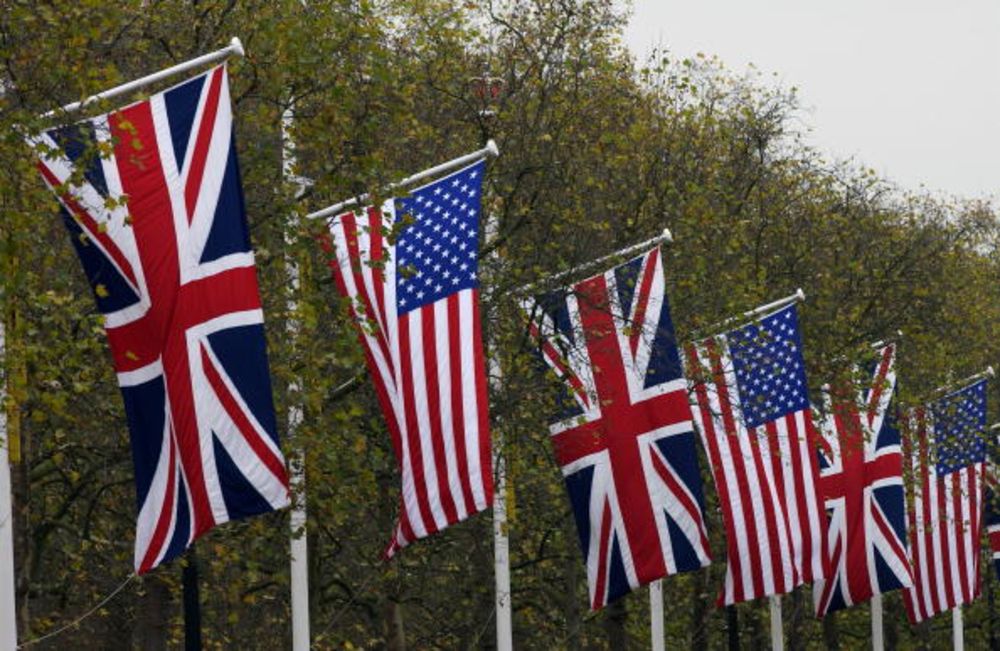Many Americans still regard Britain as the US’s political and cultural parent.
Despite the Revolutionary War and the War of 1812, the US and the UK eventually developed a special relationship that endured throughout the 20th century.
Together, the two defeated the Axis and communism, and established a global order based on free trade and (eventually) universal human rights. But even before that diplomatic alliance solidified, cultural and technological exchange between the two countries was immense — British inventions powered America’s industrial revolution, and British notions of natural rights and tolerance formed the basis of US government.
In economics, British influence on the US has been immense — Adam Smith, Alfred Marshall and John Maynard Keynes are just three of the intellectuals who revolutionized American thinking from across the Atlantic.
Thus, it is with a heavy heart that I write this article: The time has come for a hiatus in this special relationship. The UK is going through a time of extreme internal trouble, and a number of bad ideas are emerging from the chaos. The US needs to reduce, at least temporarily, its reliance on British ideas.
The most obvious example, of course, is Britain’s decision to leave the European Union. The EU has its flaws, but the UK has reacted to those problems in a highly dysfunctional way. First, there was the contentious Brexit referendum, in which ugly racism and anti-intellectualism rose to the fore. Then following the decision to exit, some British leaders began behaving in a less-than-friendly manner toward the remaining EU countries, with a few even threatening to go to war over Gibraltar.
Meanwhile, the UK hasn’t actually completed Brexit yet, and it hasn’t even decided on the details of the separation. So it’s currently enjoying none of the potential benefits of such a split, while already suffering some of the costs. Investment in the British auto industry has plummeted, and is on track to be only about a quarter the level of two years ago.
Brexit has already had a bad influence on the US The rancor of the 2016 presidential election, with its explosion of racial animus and anti-Islamic rhetoric, seemed to echo the UK Brexit referendum. Anecdotally, it’s common to encounter British white supremacists, anti-Semites and Islamophobes on Twitter, demanding that Western civilization be defended by expelling nonwhites, non-Christians and most immigrants. The American right can’t help but be influenced by these regressive ideas, to its great detriment.
But it’s not just the British right that is giving its American cousins bad ideas. The British left has taken the lead in attacking the moderate, centrist economic policy consensus that saw the free world through the 20th century. British intellectuals on the left rail constantly against neoliberalism, the technocratic, economics-based approach to policy-making. They have also been particularly dogged in attacking the economics profession.
Neoliberalism and other advocates of deregulated markets certainly overreached in the years before the financial crisis, and the economics profession — especially macroeconomics — clearly made many mistakes. But blaming centrist technocracy for all the problems of the modern age is an excuse, not an agenda, and it ignores all the good that free trade has done, especially for the poor countries of the world. Meanwhile, Jeremy Corbyn, the leftist leader of the British Labour Party, has praised Hugo Chavez, whose radical policies left Venezuela’s economy in shambles. Anti-Semitism has also surged on the British left.
In other words, where Britain was once a bastion of pragmatism and sensible calm, it is now exporting extremism, some of which finds welcome ground in the United States. This is a sad change from the 1930s, when Keynes helped US President Franklin Roosevelt chart a centrist course between laissez-faire and socialism at a dangerous moment.
But it’s not only radical British ideas that the US should avoid. The UK’s entire industrial policy during the past few decades has been questionable. All developed economies rely heavily on service industries, but in the UK this has been taken to an extreme, with services comprising 80 percent of the economy. Services don’t export very well, which probably helps to explain Britain’s persistent trade deficit. And much of Britain’s service economy centered around finance, which made it more vulnerable than many other nations to the crash of 2008. And the country’s misguided austerity policies made a bad situation worse.
Finally, it’s important to remember that British per capita income stands at only about 74 percent of US levels, compared with about 85 percent for Germany and 89 percent for the Netherlands.
So while it remains an important geopolitical ally, Britain no longer looks like a source of good ideas for the US to follow. Ironically, it’s the two countries’ old Axis foes, Germany and Japan, that now look like the strongest beacons for the United States. Germany’s effective system of collective bargaining has helped make it an export powerhouse, while Japan’s wise macroeconomic management has put the entire country back to work. And both countries, with the memory of their disastrous early 20th century extremism relatively fresh in their collective minds, have mostly avoided the bilious political outpourings roiling the UK and US.
The US would therefore be well-advised to place its special relationship with Britain on the back burner until that troubled country can sort itself out. In its place, the US should forge new special relationships with Germany and Japan.
Bloomberg
